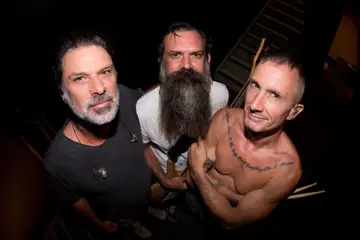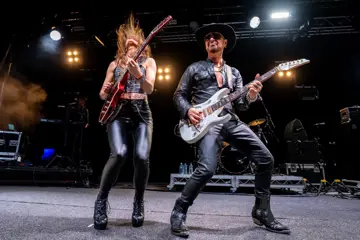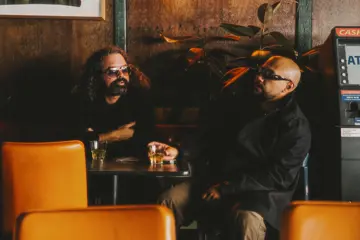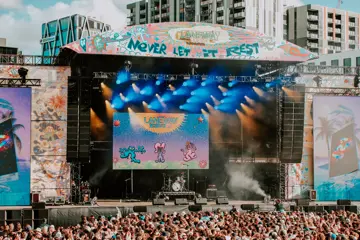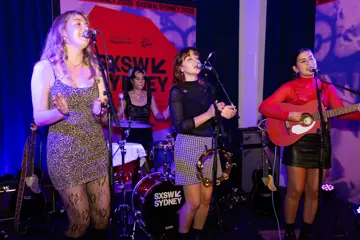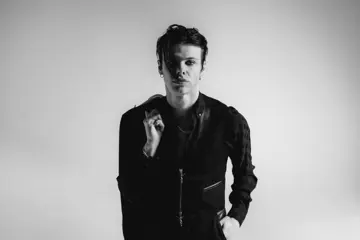If you’re a fan of Australian music, the chances are increasingly good that in recent times you’ve found yourself with a ticket to attend a boutique music festival that has announced its cancellation.
Though once a rare event prior to the COVID-19 era, these cancellations have become more and more common over the past couple of years. However, with the global pandemic considered a thing of the past by many, the continued occurrence of such revocations has led many to echo the words of Marvin Gaye as they query, “What’s going on?”
Firstly, let’s define terms. What is a ‘boutique music festival’? As its name suggests, it’s a music festival that is far smaller and more intimate than its larger counterparts. It’s the difference between events such as Splendour In The Grass and the likes of the now-defunct Boogie in regional Victoria.
Similarly, these boutique festivals tend to be more focused in terms of the artists and musical styles on offer. While Splendour might be a catch-all in terms of the music on offer, Boogie would focus more on harder rock, thus giving fans of the genre more bang for their buck.
Don't miss a beat with our FREE daily newsletter
Likewise, selling tickets to events such as these has traditionally been more difficult than their larger counterparts. Despite this, some of these boutique events have gone on to become beloved staples of the live music calendar. Think Tasmania’s Party In The Paddock, or even Laneway Festival for examples of how these more intimate undertakings have grown into highly-anticipated events each and every year.
However, these same festivals have long been accompanied by sales-related anxieties that their counterparts would not typically experience. Famously, former Soundwave promoter AJ Maddah was forced to cancel the 2013 edition of Harvest Festival due to a “lack of interest”. Even with multiple thousands of tickets sold, a lineup that featured high-profile indie names such as Massive Attack, Neutral Milk Hotel, and Franz Ferdinand did not generate enough financial security to proceed.
In recent years, this trend has only gotten worse as the world continues to recover from the economic collapse inspired by the COVID-19 pandemic.
Last month, triple j’s Hack program investigated the growing phenomenon, noting that while reports have indicated that ticket sales have increased on the whole, these numbers have been skewed by larger-scale tours by the likes of Ed Sheeran and Harry Styles, with the little guys struggling to proceed.
So what’s the cause of this disparity? In short, the factors are numerous. For potential punters, a lack of financial security has left many unwilling to put down the money required for tickets on short notice. Add in an apparent aversion to long-term planning for events which are traditionally more spontaneous, and the growing trend of acts being forced to cancel at the last minute, and many audience members find themselves somewhat wary of the ticket-buying process.
For promoters, they too have been struggling as a result of the issues faced by punters. Traditionally, the lion’s share of ticket sales are made on the day the tickets become available; usually shortly after the lineup is announced. However, this aforementioned financial insecurity has caused many potential attendees to delay their ticket purchases, meaning that promoters are placed in a difficult situation: hope that ticket sales will increase closer to the date or thanks to one-the-day walk-ups, or cancel prematurely due to poor financial projections.
It’s something that both organisers and punters are beginning to grow sadly accustomed to. In February, New South Wales’ Play On The Plain festival was cancelled, axing an event that boasted the likes of King Stingray, Jessica Mauboy, Northeast Party House, and Alex Lahey. In a statement shared to their website, the festival explained that due to its status as a “community run, Not For Profit event”, poor ticket sales meant that it was “not viable for the organisation to continue and suffer a financial loss”.
“Play on the Plains is such a great event and we’ve been committed to getting it off the ground, but the numbers are just not there,” explained Chairman Russell Tait. “On behalf of the Board, staff and artists who have done everything possible to drive ticket sales, we must be realistic and cancel at this point.”
This in itself followed on from festivals such as THIS THAT cancelling its 2022 event, citing “a combination of issues” for the decision, and singling out “the current level of market saturation resulting in supply chain issues and labour shortages, difficult economic conditions including ballooning insurance premiums and infrastructure costs, and the forecast of ongoing extreme weather patterns”.
Following years that – for the Australian music scene – were earmarked by the likes of COVID and then the La Niña weather pattern, it almost felt as though every event that was announced was swiftly affected by some form of hurdle that it was forced to either try to adapt to or announce its subsequent cancellation. For a while, it felt as though successful festivals were the outlier, as were new festivals, who braved the uncertain landscape in favour of attempting to brighten the lives of music lovers around the country.
Dan Hill is one of the founders of Adelaide’s No Quiet festival. Described as “a celebration of noise”, the punk-focused music festival made its debut in 2022 with a 300-capacity event in South Australia’s Barossa Valley. Despite a somewhat tumultuous start due to COVID restrictions, the event has since announced its return, with its second affair set to take place at The Greenock on April 29th – with figures indicating it’s on track to sell out once again.
As Hill explains, the grassroots nature of the festival was inspired by a perceived need for music fans to have their very own outlet in their neighbourhood, more than 60km north of the Adelaide CBD. Even for its first outing, Hill and co-founder Kieron Lomax tried to make the ticket-buying process as stress-free for punters as possible, utilising Humanitix to sell low-cost tickets without even collecting personal information.
“We didn't ask the age of people that were attending, we didn't ask where they were from or anything like that,” he explains. “So on the day of the event, we really had no idea what to expect as far as sort of demographic – we had from one-year-olds up to 80-year-olds
“It was amazing to see that it was just a mixed demographic, smiles from me to ear, no issues, no trouble,” he adds. “Even now, I still think about it and get chills about how cool it's to see the effect, that happiness that you've been able to create.”
For No Quiet, they operate in the South Australian gig-going economy, one that has famously seen the state’s smaller population delay their ticket-purchasing habits until the last minute, typically armed with the idea that an event won’t sell out until the day. As Hill notes, such habits have become even more noticeable with the current state of the national economy.
“It's one of those things now where everyone's rent or mortgages are going up, grocery bills are going up, and we are seeing people go and say, ‘I've got this much money left at the end of the week, I'll then go out and I'll spend that doing things that I like’,” he explains. “Nobody's booking or paying for tickets far out in advance.
“That used to be a real South Australian thing, and at the start of this ticket cycle, I thought, ‘Nature's healing, South Australia's now out of the COVID bubble and gone back to buying tickets last minute’.”
Noticeably, this trend has now spread outside of the Wine State and started to make an impact elsewhere. For promoters in cities such as Melbourne and Sydney who aren’t typically used to sales picking up late, this has the potential to raise some financial panic, with figures that aren’t projecting a sell-out having the power to necessitate a cancellation in advance of a last-minute buying frenzy.
Of course, we certainly can’t be blaming promoters for taking such drastic action when faced with concrete figures, with the likes of Urthboy publicising the issue in recent weeks.
“It's always been like that in the South Australian market since we don't have the population to be as competitive as some of the larger cities,” Hill says. “But I feel like in this environment, you can't blame punters for not buying tickets earlier; it is literally coming down to financial pressures.
“Ultimately, it could have that negative impact where people aren't taking the risk to put on shows, and that could mean that interstate and international artists aren't coming into South Australia or even into Australia.”
But what about the future of music festivals in Australia? Could we indeed see this trend of waning ticket sales leading into festivals no longer seeing viability in risk versus reward, or will we simply see more and more cancellations? For Hill, it boils down to more calculated risk, and ensuring the stakes aren’t quite as high while uncertainty remains.
“I think boutique festivals can still thrive,” Hill concludes. “We've just got to be smarter about how we do it and I think we all need to be a bit more cautious about how we do it.”


